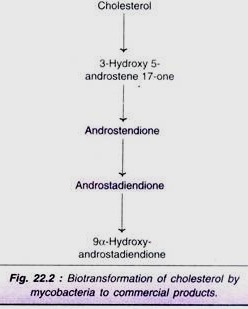In this article we will discuss about the Importance of Nitric Oxide (NO) in Health and Disease:- 1. Formation of Nitric Oxide (NO) 2. Relaxative Action on Smooth Muscle of Blood Vessels 3. Important Biologic Functions.
Formation of Nitric Oxide (NO):
1. Nitric oxide (NO) is formed by the action of the enzyme NO synthase, which is cytosolic. The endothelial and neuronal forms of NO synthase are activated by Ca2+.
The substrate is arginine, and the products are citrulline and NO:
2. NO synthase is a complex enzyme containing five redox cofactors: NADPH, FAD, FMN, heme, and tetra-hydro-bio-pterin.
3. NO can also be formed from nitrite, derived from vasodilators such as glyceryl trintrate during their metabolism.
4. NO has a very short half-life (about 3-4 seconds) in tissues because it reacts with oxygen and superoxide. The reaction with superoxide produces peroxynitrite (ONOO−) which decomposes to form the highly reactive OH– radical.
Relaxative Action on Smooth Muscle of Blood Vessels:
1. Acetylcholine is a vasodilator and causes relaxation of the smooth muscle of blood vessels. It does not act directly on smooth muscle.
2. Acetylcholine initially interacts with the endothelial cells of small blood vessels via receptors. The receptors are coupled to the phosphoinositide cycle leading to the intracellular release of Ca2+ through the action of inositol triphosphate. The elevation of Ca2+ leads to the liberation of endothelium-derived relaxing factor (EDRF) which diffuses into the adjacent smooth muscle.
3. EDRF then reacts with the heme moiety of a soluble guanylyl cyclase with the elevation of intracellular levels of cGMP which stimulates the activities of certain cGMP-dependent protein kinases that phosphorylate specific muscle proteins causing relaxation.
4. The coronary artery vasodilator nitroglycerin, widely used to relieve angina pectoris, acts to increase intracellular release of EDRF and thus of cGMP.
Important Biologic Functions of Nitric Oxide (NO):
1. Nitric Oxide (NO) is inhibited by hemoglobin and other heme proteins which bind it strongly.
2. Chemical inhibitors of NO synthase can markedly decrease formation of NO. The use of such inhibitors to animals and humans leads to vasoconstriction and a high elevation of blood pressure. This indicates that NO is important in the maintenance of blood pressure in vivo.
3. It has the important cardiovascular effect that it acts as an inhibitor of platelet aggregation by increasing synthesis of cGMP.

